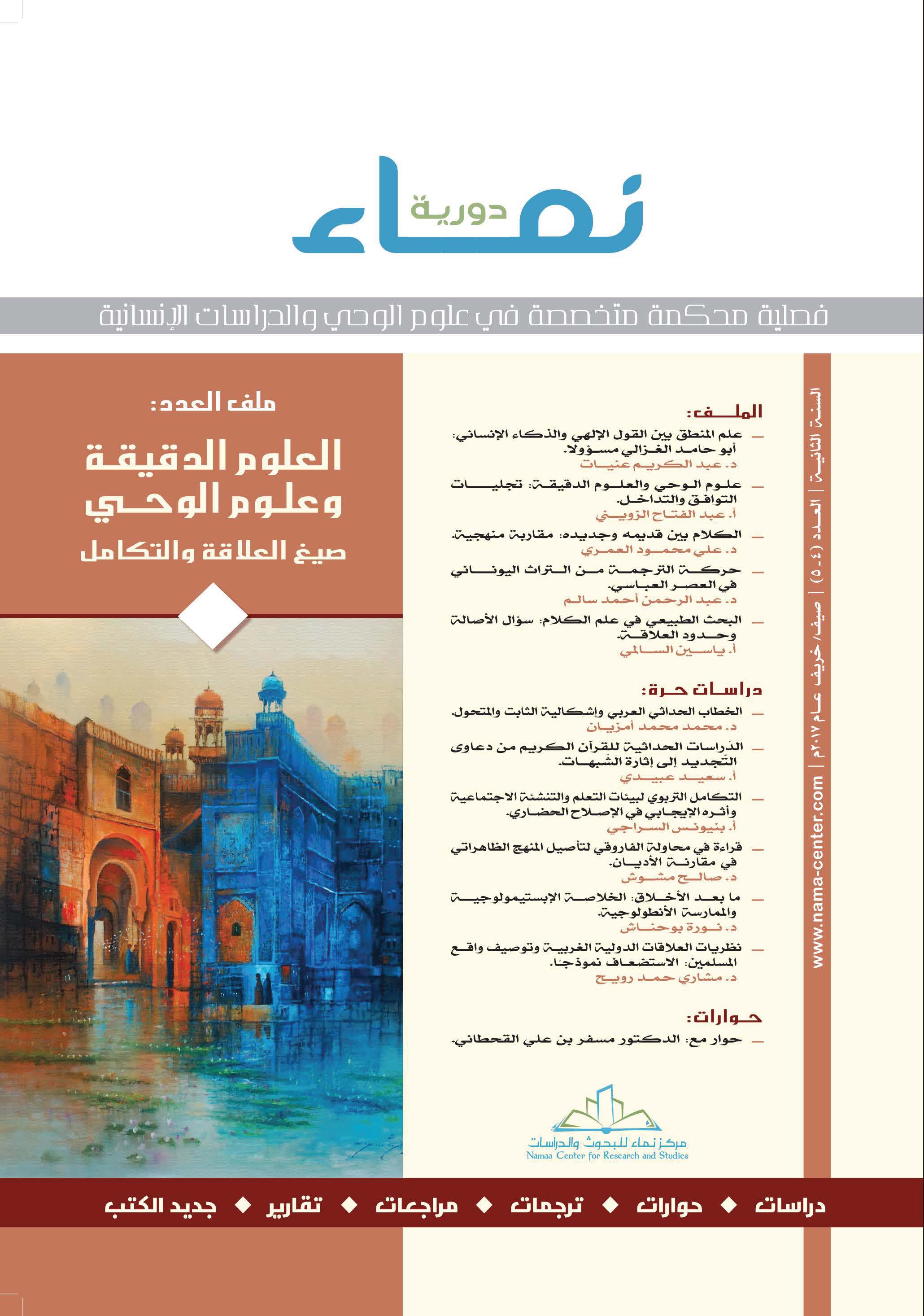The Science of Logic between Divine Saying and Human Intelligence: Abu Hamid Al-Ghazali Responsible
Abstract
This research seeks to trace the dialogues initiated by Abu Hamid Al-Ghazali with logic, especially Aristotelian. Al-Ghazali's effort shows us its great value in protecting logic from jurisprudential attacks that do not follow it, because Al-Ghazali has established the origin of logic (i.e. straight measure or criterion of knowledge) in the Qur'anic text. Therefore, jurists cannot belittle what the Qur’an has brought or deny its value. However, this effort, which is expressed by the Islamization of logic in Al-Ghazali's experience, is not consistent with the contemporary scientific conquests, which went beyond Aristotelian logic. Accordingly, rooting science in the Qur’anic text does not always provide results that benefit the Muslim mind or the Qur’anic text. The research consisted of the following chapters: another interpretation of an old relationship by Al-Ghazali and Ibn Rushd, the Quranic origins of Aristotelian syllogisms, and a new addendum in the value of Al-Ghazali's project. It concluded that it is possible to conjecture, according to Al-Ghazali that the forms of analogy are present in the Holy Qur'an, that Aristotle had read a copy of God's words that were close to the Qur'an, or that it is the Qur'an itself in another language. This is historically impossible, because the Qur'anic version is unique and appeared only with the revelations that Mohammad, peace be upon him, received.
Full text article
Authors

This work is licensed under a Creative Commons Attribution-NonCommercial 4.0 International License.
yright and License
Researchers always have copyright. The research published in the Journal is licensed under the Creative Commons Attribution-Noncommercial 4.0 International License. This means that every person can download, read and use the research, provided that he/she relates it to its author appropriately, stating any amendments made. This work cannot be used for commercial purposes.

